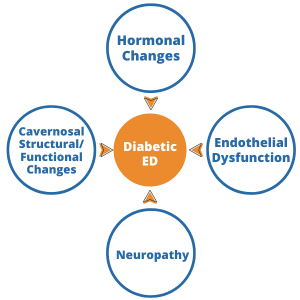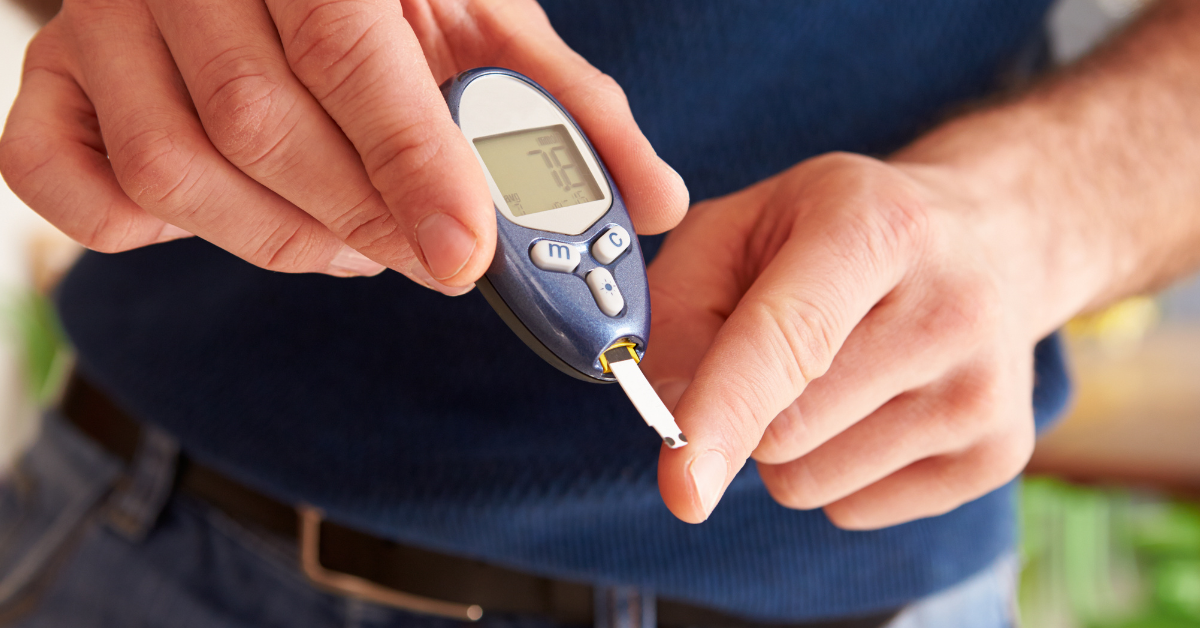Erectile dysfunction (ED) is associated with a wide range of physical and physiological conditions in male patients. Chronic ailments such as heart disease, atherosclerosis, high cholesterol, and high blood pressure are all linked to ED symptoms in men,1 but among the most commonly correlated conditions is diabetes.
As many as 1 in 2 men could have erectile dysfunction related to diabetes, which makes it crucial for physicians to regularly screen and address possible ED symptoms with male patients. In fact, in about 12% of cases, symptoms of erectile dysfunction actually leads to a diabetes diagnosis.2
Some research has shown even greater prevalence, such as a 2007 study that found 90% of men with ED either had diabetes or at least one of the risk factors for it, such as high blood pressure or high cholesterol.3
Why it occurs
Men with diabetes, especially those with Type 2 diabetes, may experience ED due to the effect poor long-term blood sugar control has on nerves and blood vessels. In some cases, men will notice difficulty maintaining an erection even before a diagnosis of diabetes.4 Patients with ED and diabetes are often difficult to treat due to the multifactorial pathophysiology of diabetes.5

ED may present with greater severity in men with diabetes, as well as affect younger patients – presenting 10 to 15 years earlier in men who have diabetes compared to those who do not.6 It is even more prevalent in men with juvenile-onset diabetes than those with adult-onset diabetes.7
Clinical Implications
The connection between erectile dysfunction and diabetes makes it more imperative than ever for providers to increase their awareness and knowledge of ED symptoms and treatment options. Regularly screening male patients for ED symptoms can be an important diagnostic step in the clinical setting, potentially uncovering not only uncontrolled diabetes but other serious health conditions such as heart disease.
Learn more about how MediSuite makes treating the symptoms of ED easier and less expensive for patients.

